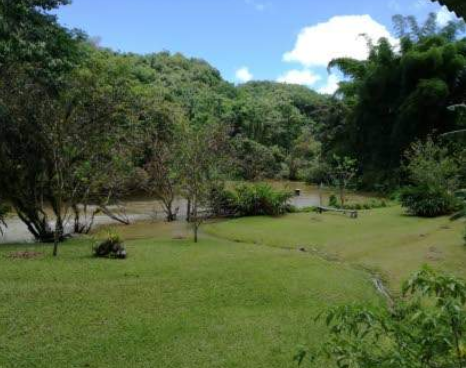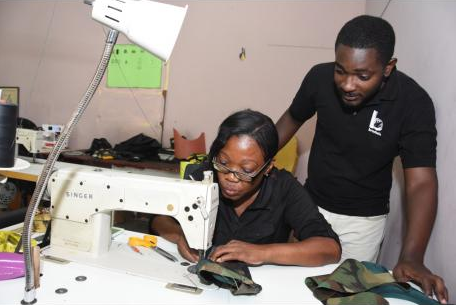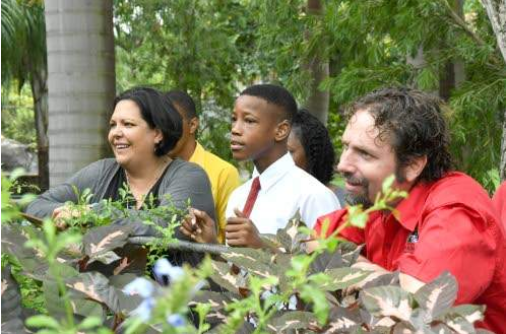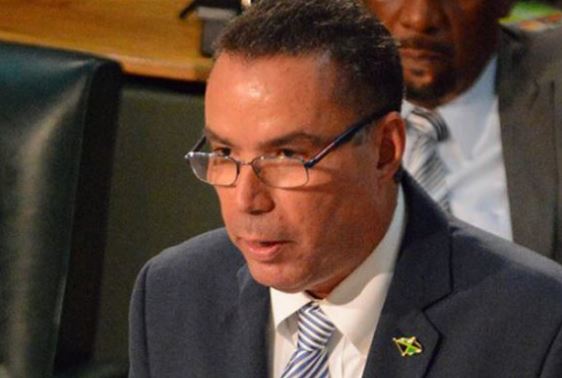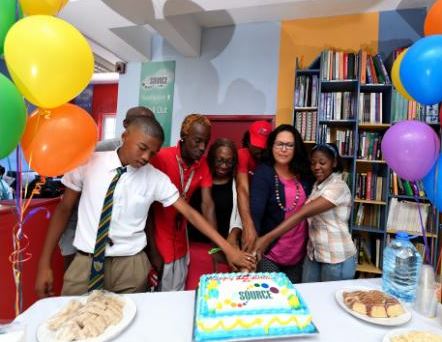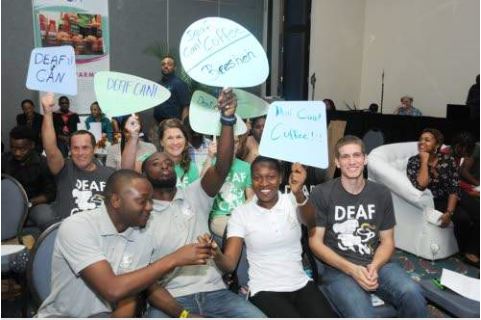Bunkers Hill: A deep Jamaican experience
A doctor bird seeming to greet visitors as it swiftly flaps its wings and plunges its elongated beak into a fiery-red ginger lily in pursuit of nectar, is all the confirmation one needs to know that they are in for a truly authentic Jamaican treat. This is Bunkers Hill, Trelawny, located at the entrance to the biodiverse Cockpit Country, which abounds with nature and history.
Home to 66 of the country’s endemic plants and several species of animals not found anywhere else on earth, one could describe the Cockpit Country as the “literal heart of the nation,” preserving not only plants and animals native to Jamaica, but also cultural rituals and practices dating back to the inhabitation of this land by the Maroons, led by Captain Cudjoe and the legendary heroine, Nanny.
All of these fine distinctions make the Bunkers Hill Cultural Xperience unlike tours that Jamaica has to offer in its versatile tourism product.
With the gushing waters of the Tangle River, which flows into the Martha Brae, creating the spine of the five-acre property, this cultural enclave captures the history of Jamaica and gives one the opportunity to live and breathe its essence.
As you enter the caves on the banks of the river, for example, you can see the writings and carvings of the Taino people who once inhabited it; or hike a few miles and bravely climb the steep cliffs to a cave which sustained Cudjoe and his men in their effort to evade the British. However, caution: it’s not a trip for the faint-hearted.
Beyond the caves lies the ruins of the Dromilly Great House, and the site where Cudjoe and his men ambushed British troops around 1795.
Everything about the Bunkers Hill Cultural Xperience is authentically Jamaican.
“We prepare authentic Jamaican meals such as run dung and roast yam, roasted sweet potato, dukoonoo, rice and peas with coconut milk —grated and the juice strained —your cornmeal pudding, all cooked on wood fires,” Clover Gordon, who jointly manages the property with her husband, O’Brian, explained, stimulating one’s appetite.
The drinks and meals are served in painted enamel cups and plates along with the utensils Jamaicans used in the 19th to mid-20th centuries; or, on banana leaves, carefully cleaned calabash shells, as was the practice of the Maroons. These traditions are also kept alive by their descendants in some rural Jamaican communities.
One of the social enterprises nurtured under the Social Enterprise Boost Initiative by the JN Foundation and the US Agency for International Development, the Bunkers Hill Cultural Xperience relies on the resources of the Bunkers Hill community and its surrounding hamlets for sustenance. Consequently, more than 90 per cent of its food and 100 per cent of its human resources come from the community.
“We are going to need more support from the community,” Clover Gordon said, as the attraction, which recently received its permit from the National Environment and Planning Agency (NEPA) and is in the process of applying for an operating licence from the Jamaica Tourist Board, prepares for its official opening to the public in July.
“At that time, we may be needing 100 pounds of chicken, so they will need to increase supplies. Therefore, if Jane don’t have, Mr Peter will have next week,” she stated. “Because 90 per cent of what we use comes from the community and we want as many guests as possible to come here so that the community benefits.”
The operation provides an employment and production boon in the community, giving its mainly farming constituents an additional source of income. It already employs 10 people part-time; and, with its upcoming launch and expansion, there will be need for additional cooks, tour guides, life guards, and others.
For Kemar, who travels daily to work miles away in Hanover at the Tryall Club, it provides an income during the “off season” when visitor bookings are low at the high-end resort and there is no employment for him.
“It’s good employment here,” he said shyly. “It uplifts the community and gives us work.”
However, more important to him and Alexander, another young male resident employed as a tour guide, it allows them to discover aspects of their community and its indigenous culture that were not well known to them.
“I’m now learning about the Maroons and Tainos, because I’ve never been inside the caves,” said Kemar, a sense of excitement evident in his eyes, as he chopped wood to build a new thatch hut on the river bank.
To this, Alexander added: “I am more aware of my culture. It gives me a confidence boost that this place is rich in culture, and I feel rich being a part of the Maroon culture.”
For the Gordons, this historical introspection and cultural preservation is a primary objective of their Bunker’s Hill Cultural Xperience, which emerged to Clover Gordon in a literal dream some four years ago.
Beyond simply generating employment and economic activity in the community, the registration and inclusion of cultural groups, such as the Deeside Cultural Group and the Wakefield Tambo Group, are essential to maintaining the cultural development which the Gordons want to engender.
“Unfortunately, some residents are not aware of the historic and cultural value of their community,” said Clover Gordon. “The ruins of the Dromilly Great House is right around the corner and residents were not aware of the ambush that took place there; the caves are there with the Taino’s writings, and it was not until the Jamaica Caves Organisation came here that they learned about it.”
“Therefore, we want more residents to understand what they have in their community, because they have something rich here,” she stated.
“We have lost a lot of knowledge,” acknowledged Parish Manager of the Social Development Commission, Paula Barrett, who was born in Bunkers Hill. “Even the Nine Nights. They were not about large sound systems, as they are now, but about the ‘gere’ and the ‘bruk stone.’ We have lost that now.”
Plans are underway to formally open the Bunkers Hill Cultural Xperience to the public in July; and, to preserve and promote cultural authenticity, which is the primary objective of the Gordons.
The project capitalises on Clover Gordon’s years of experience and influence in the tourism industry in Negril, Westmoreland; and they are networking and using social media to promote this unique product.
“The sky’s the limit. We are less than an hour from the Falmouth Cruise Ship Pier and we have everything that tourists want to see in terms of who Jamaicans are — the beauty, landscape and experience the ambience,” said O’Brian Gordon, himself a native of Trelawny.
During the next month, the Gordons will complete areas such as a parking lot and septic tank to ensure congestion and health issues do not dampen the Bunkers Hill Cultural Xperience, and in the short term, cabin accommodations will also be added.
Jamaicans living overseas also have the opportunity to contribute to the development of the Bunkers Hill Cultural Xperience by investing in the JN Bank Diaspora Certificate of Deposit, from which a percentage of the interest earned will be matched and re-invested into businesses being nurtured by the Social Enterprise Boost Initiative by the JN Foundation.
“Our community is ready for the experience and look forward to the success,” O’Brian Gordon affirmed.

